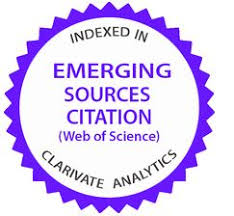IFRS Adoption and Information Quality: Evidence from Emerging Market
Abstract
The IASB was established in order to produce a single set of high quality, understandable and enforceable accounting standards, namely the IFRS. Most of the existing studies about the IFRS have largely focused on advanced countries adoption, while the present study fills a gap in the existing literature by studying the effect of IFRS adoption on information quality in an emerging market. A number of studies indicate that this new set of standards is primarily aimed at countries with highly developed capital market, and it can be questioned whether the resulting standards are optimal for developing and transitional economies. This study attempts to examine whether there is any significant association between IFRS adoption and market perspective of information quality, proxied by bid-ask spread. The sample comprises a balanced panel of 858 firm-year observations of listed firms under the Main Board of Bursa Malaysia. Results of the study shows that the implementation of IFRS generally reinforces information quality. Taken together, our results are consistent with the view that IFRS represent a vehicle through which countries can improve information quality and make their capital markets more efficient and accessible to investors. This is the first published study that investigates the impact of IFRS adoption on information quality of an emerging market. The nature of the information environment of capital market in Malaysia provides us with enough motivations to investigate the impacts of this new set of standards on information quality.
Keywords
information quality; bid-ask; emerging market; information asymmetry; IFRS
Full Text:
PDFDOI: http://dx.doi.org/10.17576/ajag-2014-5-8755
Refbacks
- There are currently no refbacks.
This journal is indexed by:


![]()
![]()
![]()
ISSN : 2180-3838
e-ISSN : 2716-6060
